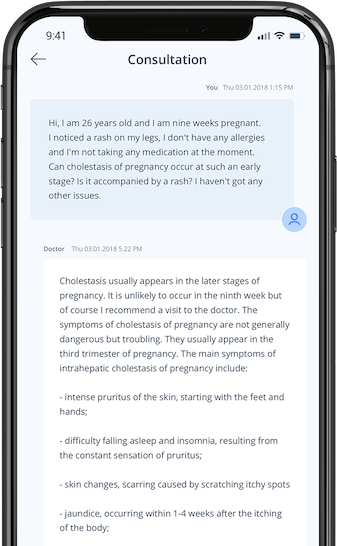Causes and Types of Dementia
Dementia arises from the damage or degeneration of nerve cells and their connections in the brain. The symptoms an individual experiences depend on the affected brain region, leading to different manifestations. Dementia can be classified based on the proteins found in the brain or the specific damaged brain region. Some diseases mimic dementia symptoms, and certain medications can produce dementia-like side effects. Additionally, a deficiency in specific vitamins or minerals can lead to dementia symptoms, but these can often be reversed with the right treatment. Here are the types of dementia:
Progressive Forms (Currently Irreversible)
- Alzheimer’s Disease: The most common form of progressive dementia. While its primary cause remains unknown, certain genetic changes, such as Apolipoprotein-E4 (APOE), are associated with its onset. Affected individuals have plaques and tangles in their brains—clusters of beta-amyloid protein and tangled tau protein, respectively. These accumulations are believed to damage healthy brain cells and their connections.
- Frontotemporal Dementia: This results from the degradation of nerve connections in the brain's temporal and frontal lobes. Symptoms include changes in language, thinking, behavior, and movement.
- Vascular Dementia: Caused by damage to the brain's blood vessels, potentially leading to strokes or affecting the brain's white matter. Its primary symptoms include problem-solving difficulties, slowed thinking, and focus and organizational challenges, often more pronounced than memory loss.
- Lewy-Body Dementia: The second most common form after Alzheimer's. It's characterized by protein deposits called Lewy bodies in the brain's nerve cells, affecting memory, cognition, and movement regions. This leads to a progressive mental decline. Affected individuals might experience visual hallucinations and changes in alertness and attention.
- Mixed-Type Dementia: Post-mortem autopsies have shown that dementia patients often present with multiple forms.
Medical Conditions Associated with Dementia Development
- Traumatic Brain Injuries (TBI): Caused primarily by repeated head injuries, often seen in athletes. Symptoms vary based on severity and the affected brain area. TBI can lead to depression, mood swings, memory impairment, and speech challenges. It may also result in slow movement, tremors, and stiffness.
- Huntington’s Disease: A genetic mutation causes this, leading to the degeneration of specific nerve cells in the brain and spinal cord. Symptoms include a decline in cognitive abilities.
- Parkinson's Disease: Many Parkinson's patients develop dementia, typically later after the initial Parkinson's diagnosis.
- Creutzfeldt-Jakob Disease: A rare condition believed to result from the accumulation of prions (infectious protein products).
Reversible Causes of Dementia
- Fluid accumulation in the brain's ventricles, tumors, or bleeding.
- Infections: Fever or other bodily responses to infections can lead to dementia-like symptoms.
- Auto-Immune Disorders: Including systemic lupus erythematosus (SLE), Behçet's disease, multiple sclerosis (MS), and Sjögren's syndrome.
- Endocrine Issues: Conditions like hypo/hyperthyroidism, Addison’s disease, and Cushing's disease can lead to dementia-like symptoms.
- Nutrient Deficiencies: A lack of specific vitamins or minerals, such as thiamin (vitamin B-1), often seen in individuals with alcohol use disorder, or insufficient vitamins B-6, B-12, copper, or vitamin E, can lead to dementia-like symptoms. Dehydration can also cause similar symptoms.
Risk Factors for Dementia
Several factors are associated with dementia development, some modifiable and others not.
Modifiable Risk Factors
- Dietary intake of essential vitamins like B12, B6, folate, and vitamin D.
- A healthy lifestyle has been linked to a significantly reduced Alzheimer's dementia risk.
- Alcohol consumption.
- Depression and sleep disturbances.
Non-Modifiable Risk Factors
- Age: The risk of dementia increases with age, especially after 65. However, dementia isn't a natural part of aging and can affect younger individuals.
- Trisomy 21: Many individuals with Down syndrome develop early-onset dementia.
- Family History: Like many diseases, having a family history increases the risk.
Diagnostic Methods for Dementia
To diagnose dementia, healthcare providers must evaluate the pattern of skill and function loss and assess the individual's remaining abilities. Biomarkers, like beta-amyloid 42, have become instrumental in diagnosing Alzheimer's disease more accurately. The diagnostic process includes reviewing medical history, symptoms, and conducting a physical examination. Feedback from someone close to the patient might also be sought. A combination of tests is typically required, as no single test can conclusively diagnose dementia. These tests include:
- Cognitive and neurological assessments.
- Imaging techniques like MRI, CT, or PET.
- Laboratory testing, such as cerebrospinal fluid testing for protein biomarkers and blood tests for vitamin levels (B12 / folate / B6).
- Dementia
- The Lancet Public Health: Global dementia cases set to triple by 2050 unless preventative action is taken
- The Role of Diet and Nutritional Supplements in Preventing and Treating Cardiovascular Disease
- Dietary intake of antioxidants and risk of Alzheimer disease
- Association of Seafood Consumption, Brain Mercury Level, and APOE ε4 Status With Brain Neuropathology in Older Adults
- Healthy lifestyle and the risk of Alzheimer dementia: Findings from 2 longitudinal studies
- How Biomarkers Help Diagnose Dementia








